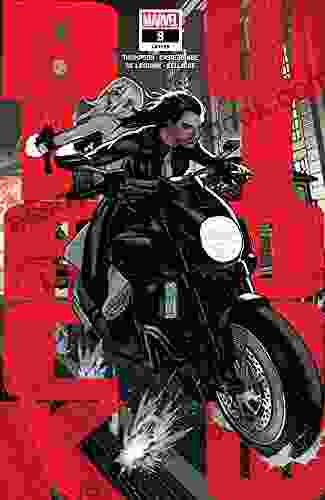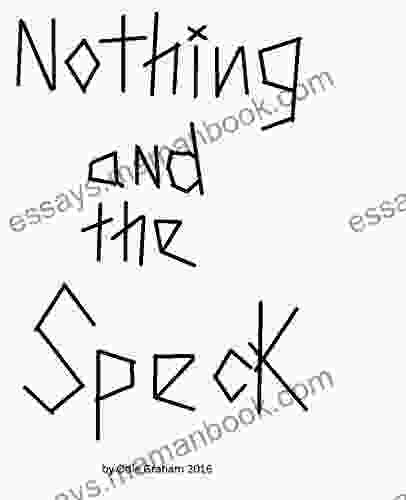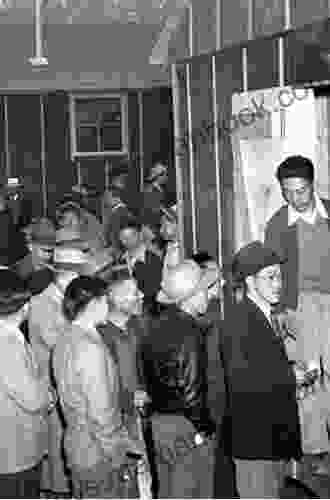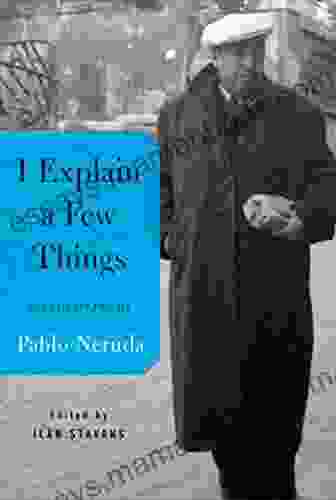The Literature of the Japanese American Prison Camps: A Journey of Pain, Resilience, and Resistance

`
4.7 out of 5
| Language | : | English |
| File size | : | 20807 KB |
| Text-to-Speech | : | Enabled |
| Screen Reader | : | Supported |
| Enhanced typesetting | : | Enabled |
| Word Wise | : | Enabled |
| Print length | : | 282 pages |
| Lending | : | Enabled |
In the annals of American history, the era of World War II bears witness to one of the darkest chapters: the forced incarceration of Japanese Americans into prison camps. This mass internment, driven by fear and prejudice, profoundly affected the lives of thousands of innocent individuals. Yet, amidst the pain and deprivation, a remarkable literary legacy emerged, giving voice to the experiences of those unjustly imprisoned.
The literature of the Japanese American prison camps is a testament to the resilience and resistance of the human spirit. Through memoirs, poems, and works of fiction, these writings offer a poignant glimpse into the lives of those who endured unimaginable hardship and emerged with a renewed sense of identity and purpose.
Memoirs: A Personal Account of Incarceration
Memoirs form a significant part of the Japanese American prison camp literature. They provide a first-hand account of the experiences of those who were interned, offering a visceral and intimate perspective on the daily struggles and emotional turmoil they faced.
One of the most renowned memoirs is "Farewell to Manzanar" by Jeanne Wakatsuki Houston, which recounts her childhood experiences in the Manzanar camp in California. Through vivid and poignant prose, Houston captures the complexities of life behind barbed wire, from the dehumanizing conditions to the enduring bonds of community.
Another notable memoir is "Densho: The Japanese American Legacy Project," a collaborative work that compiles the oral histories of over 800 survivors. These first-person narratives provide a rich and diverse account of the experiences in the camps, shedding light on the range of challenges and triumphs faced by those who were imprisoned.
Poetry: The Language of Loss and Longing
Poetry became a powerful medium for Japanese American writers to express the pain and longing they endured during their incarceration. Their verses captured the complexities of human emotion, from the despair of displacement to the hope for a better future.
One of the most celebrated poets of this era is Toyo Miyatake, whose work often explored the themes of loss, identity, and the search for meaning. In his poem "At Manzanar," he writes:
"Barbed wire fence/rows of barracks bleakly bare/wind-whipped dust in the sun's glare/and the ache of absence"
Another notable poet, Mitsuye Yamada, used her poetry to challenge the stereotypes and silence surrounding the Japanese American experience. In her poem "To the Lady Who Said No," she confronts the racism and prejudice that led to their unjust imprisonment.
Fiction: Exploring Identity and Trauma
In addition to memoirs and poetry, Japanese American writers also turned to fiction to explore the experiences of incarceration and its lasting impact on their lives. Novels and short stories provided a broader canvas for imagining the complexities of human experience and the enduring legacies of historical trauma.
One of the most acclaimed novels of this era is "No-No Boy" by John Okada, which tells the story of Ichiro Yamada, a young Japanese American man who refuses to renounce his American citizenship while imprisoned in a camp. The novel delves into the psychological and social complexities of resistance and the search for identity in the face of adversity.
Another notable work of fiction is "American Son" by Jamie Ford, which interweaves the stories of two young people, one Japanese American and the other white. The novel explores the enduring legacy of the prison camps, as well as the themes of cross-cultural understanding and forgiveness.
The Legacy of Literary Resistance
The literature of the Japanese American prison camps stands as a testament to the resilience and resistance of the human spirit. Through memoirs, poetry, and fiction, these writings give voice to the experiences of those who were unjustly imprisoned, shedding light on the complexities of human emotion and the enduring search for identity and purpose.
This literary legacy has played a significant role in raising awareness about the injustices of the incarceration, challenging stereotypes, and fostering a deeper understanding of the complexities of historical trauma. The writings of these authors continue to inspire and educate new generations, reminding us of the importance of speaking out against injustice and embracing diversity.
`
4.7 out of 5
| Language | : | English |
| File size | : | 20807 KB |
| Text-to-Speech | : | Enabled |
| Screen Reader | : | Supported |
| Enhanced typesetting | : | Enabled |
| Word Wise | : | Enabled |
| Print length | : | 282 pages |
| Lending | : | Enabled |
Do you want to contribute by writing guest posts on this blog?
Please contact us and send us a resume of previous articles that you have written.
 Top Book
Top Book Novel
Novel Fiction
Fiction Nonfiction
Nonfiction Literature
Literature Paperback
Paperback Hardcover
Hardcover E-book
E-book Audiobook
Audiobook Bestseller
Bestseller Classic
Classic Mystery
Mystery Thriller
Thriller Romance
Romance Fantasy
Fantasy Science Fiction
Science Fiction Biography
Biography Memoir
Memoir Autobiography
Autobiography Poetry
Poetry Drama
Drama Historical Fiction
Historical Fiction Self-help
Self-help Young Adult
Young Adult Childrens Books
Childrens Books Graphic Novel
Graphic Novel Anthology
Anthology Series
Series Encyclopedia
Encyclopedia Reference
Reference Guidebook
Guidebook Textbook
Textbook Workbook
Workbook Journal
Journal Diary
Diary Manuscript
Manuscript Folio
Folio Pulp Fiction
Pulp Fiction Short Stories
Short Stories Fairy Tales
Fairy Tales Fables
Fables Mythology
Mythology Philosophy
Philosophy Religion
Religion Spirituality
Spirituality Essays
Essays Critique
Critique Commentary
Commentary Glossary
Glossary Bibliography
Bibliography Index
Index Table of Contents
Table of Contents Preface
Preface Introduction
Introduction Foreword
Foreword Afterword
Afterword Appendices
Appendices Annotations
Annotations Footnotes
Footnotes Epilogue
Epilogue Prologue
Prologue Mark S Burrows
Mark S Burrows Barbara Luke
Barbara Luke Jared Wynn
Jared Wynn Christie Golden
Christie Golden Jerry Duberstein
Jerry Duberstein Adolph Caso
Adolph Caso Sharon V Kramer
Sharon V Kramer Dan Jurgens
Dan Jurgens Patrick Thomas
Patrick Thomas Mrs Autumn Mckay
Mrs Autumn Mckay Karl Marx
Karl Marx Kathy Stanton
Kathy Stanton Safiya Umoja Noble
Safiya Umoja Noble Thomas M Nichols
Thomas M Nichols Deanna Chase
Deanna Chase Leslie Charteris
Leslie Charteris Cathy A Malchiodi
Cathy A Malchiodi J M Stengl
J M Stengl Kristen Marshall James
Kristen Marshall James Thomas H Cormen
Thomas H Cormen
Light bulbAdvertise smarter! Our strategic ad space ensures maximum exposure. Reserve your spot today!

 Gustavo CoxLeading Agile Developers: Developing Agile Leaders - Addison Wesley Signature...
Gustavo CoxLeading Agile Developers: Developing Agile Leaders - Addison Wesley Signature... Pablo NerudaFollow ·5.9k
Pablo NerudaFollow ·5.9k Javier BellFollow ·6k
Javier BellFollow ·6k Milan KunderaFollow ·17.9k
Milan KunderaFollow ·17.9k Evan SimmonsFollow ·9.9k
Evan SimmonsFollow ·9.9k DeShawn PowellFollow ·11.1k
DeShawn PowellFollow ·11.1k Chandler WardFollow ·8.2k
Chandler WardFollow ·8.2k Eddie BellFollow ·11k
Eddie BellFollow ·11k Glenn HayesFollow ·16.3k
Glenn HayesFollow ·16.3k

 Dean Butler
Dean ButlerBlack Widow 2024: A Comprehensive Guide to Kelly...
In 2024, Marvel...

 Gage Hayes
Gage HayesNothing and the Speck: An In-Depth Analysis of Yana...
Yana Toboso's works, particularly the manga...

 Stan Ward
Stan WardThe Best American Poetry 1997: James Tate
The Best American Poetry...

 Corey Green
Corey GreenThe Chance of Home: Exploring the Poetic Landscape of...
Immerse yourself in the evocative world of...
4.7 out of 5
| Language | : | English |
| File size | : | 20807 KB |
| Text-to-Speech | : | Enabled |
| Screen Reader | : | Supported |
| Enhanced typesetting | : | Enabled |
| Word Wise | : | Enabled |
| Print length | : | 282 pages |
| Lending | : | Enabled |














